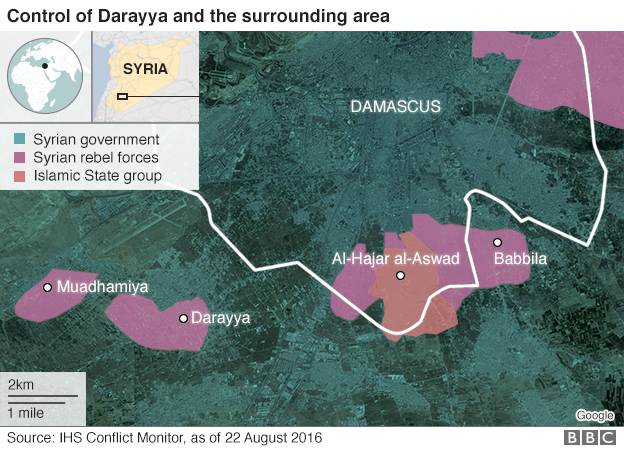Syrian war: US and Russia 'achieve clarity on path forward'
- Published
The regime "don't want a single person living in Darayya", one rebel fighter tells the BBC
US Secretary of State John Kerry says he and his Russian counterpart Sergei Lavrov "have achieved clarity on the path forward" in Syria, but have "narrow issues" to resolve.
The two held talks in Geneva to try to find a way of reviving a cessation of hostilities that faltered months ago.
Mr Kerry said they were close, but would not rush into an agreement.
The talks come as the Damascus suburb of Darayya was evacuated after a four-year siege by the government.
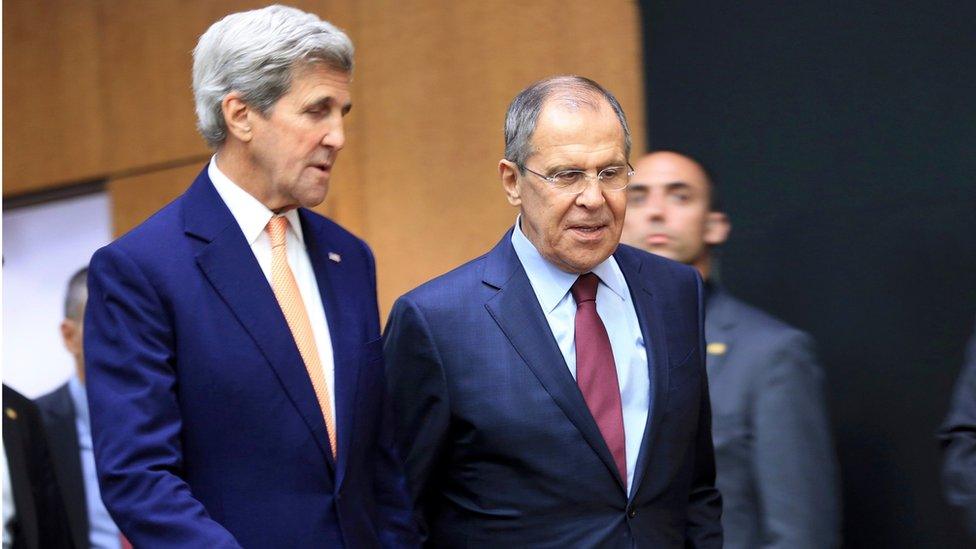
John Kerry, left, and Sergei Lavrov have been trying to bring about a ceasefire and restart peace talks
After meeting for nearly 10 hours, Mr Kerry said the "vast majority'' of technical discussions had been completed, adding that experts would remain in Geneva to work on the unresolved steps in the coming days.
He stressed that the only way to solve the conflict was through political agreement.
"We want to have something done that is effective and that works for the people of Syria, that makes the region more stable and secure, and that brings us to the table here in Geneva to find a political solution," he said.

In Syria, fighting intensifies: Lyse Doucet, BBC News, Geneva
Nearly 10 hours of talks were not enough to close the gaps.
It is clear some progress was made, but the question is whether Russia and the United States will ever be able to reach a lasting deal on crucial and complex issues.
One goal is to strengthen their military co-operation in the fight against so-called Islamic State and forces linked to al-Qaeda.
But they, and their Syrian allies, still disagree on which groups are legitimate targets.
They also want the Syrian government and the opposition to accept a truce.
But, on the ground, fighting intensifies with all sides still trying to gain advantage. In the town of Darayya just outside Damascus, rebels were forced to surrender after four years of bombardment and siege.
The government regards these local deals, on its own terms, as a way forward, not talks by outside powers in foreign capitals.

Mr Kerry reminded journalists of the image, widely shared on social media, of a five-year-old boy sitting dazed in an ambulance after an air strike in Aleppo, saying "that image needs to motivate all of us, to get the job done".
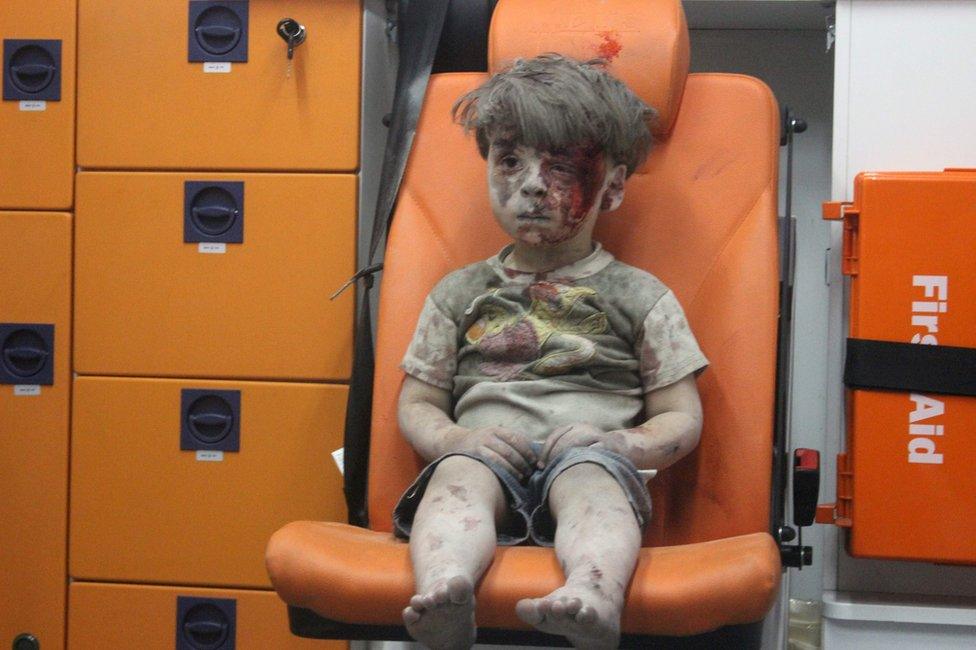
The image of five-year-old Omran Daqneesh covered in grey dust and fresh blood should motivate everyone "to get the job done", says John Kerry
Mr Kerry said the Syrian government, with the help of its allies including Russia, continued to breach the terms of an existing cessation of hostilities agreement.
"Aleppo continues to be besieged and bombarded by the regime and its allies, including Iran, Russia and Hezbollah, and the regime just today forced the surrender of Darayya after a brutal four years of siege," he said.
He was speaking hours after the first buses left Darayya, accompanied by ambulances and Red Crescent vehicles.
The UN has expressed concern over the plan, saying it is essential that those leaving do so voluntarily.
The Syrian army encircled Darayya in 2012 and just one aid delivery has reached the town since then.
Opposition fighters are due to be given safe passage to the rebel-held city of Idlib, while civilians are going to government shelters in Damascus.
The withdrawal of rebels just a few miles from Damascus is a boost for President Bashar al-Assad, analysts say.
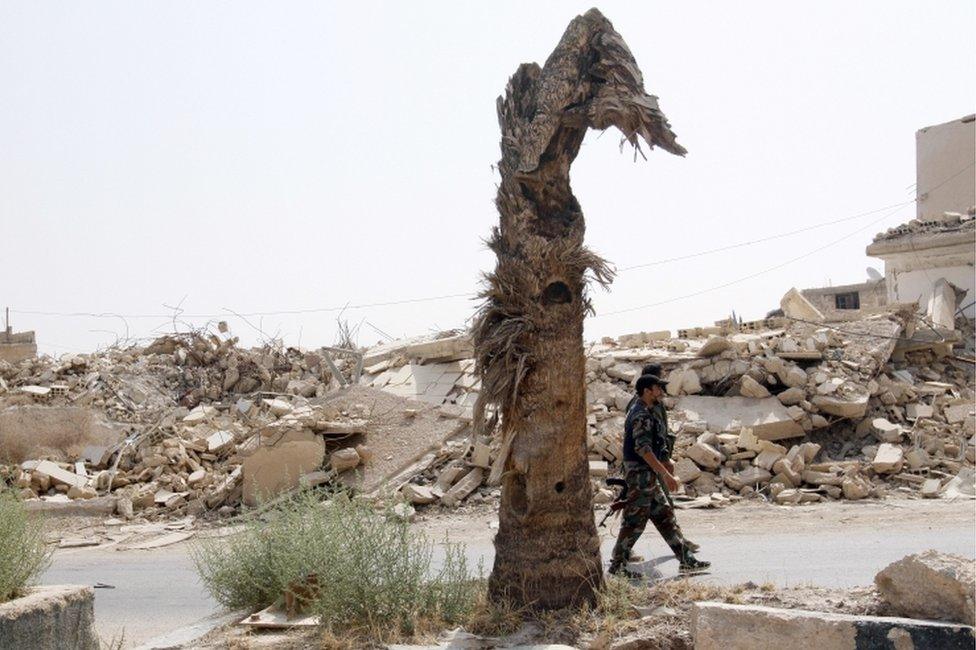
Years of bombardment have devastated the town of Darayya
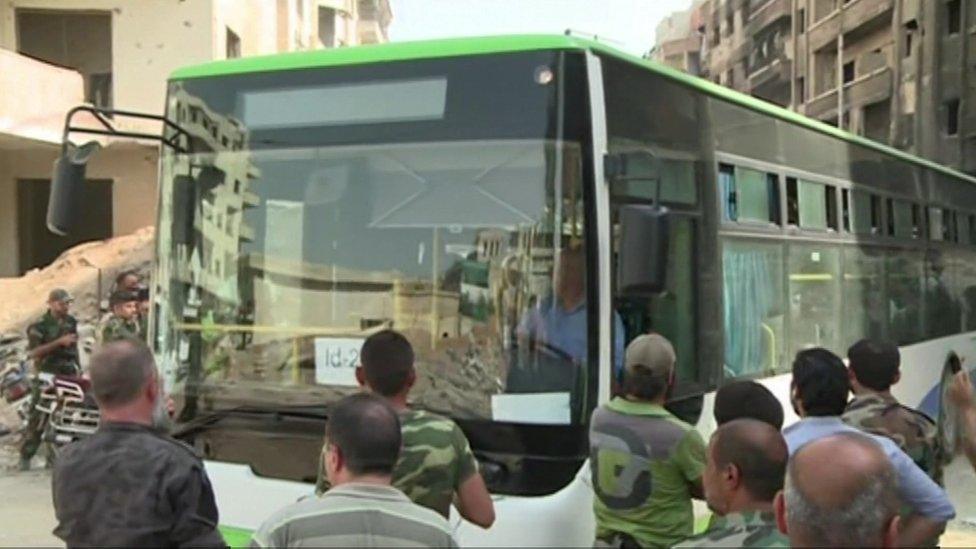
The first buses left on Friday afternoon, carrying civilians and rebel fighters
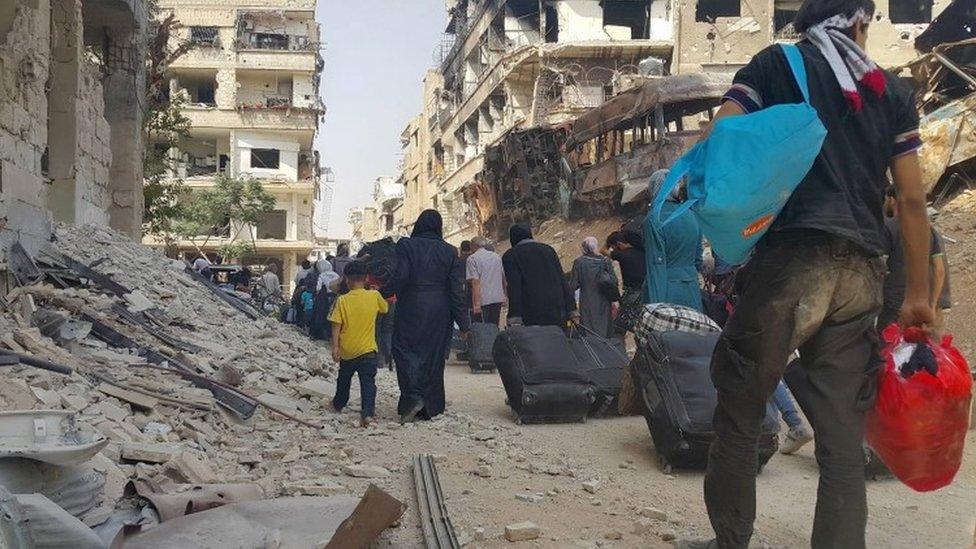
Residents carried what belongings they could take as they awaited evacuation
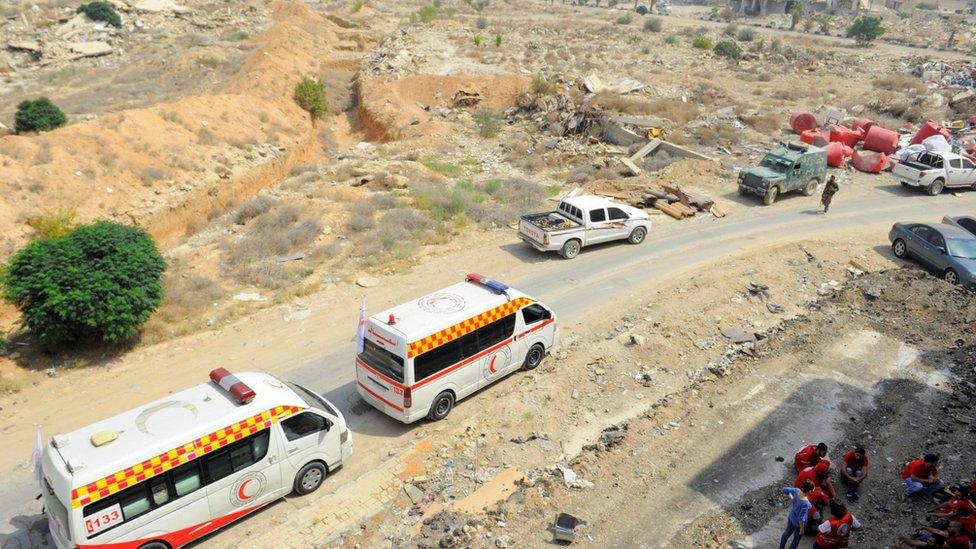
The Red Crescent has been involved in the operation
For years those living in Darayya have endured constant shelling, as well as suffering shortages of food, water and electricity.
Some of those leaving said the town had become uninhabitable.
Darayya saw some of the first protests against the Syrian government, an uprising that transformed into a full-blown civil conflict.
